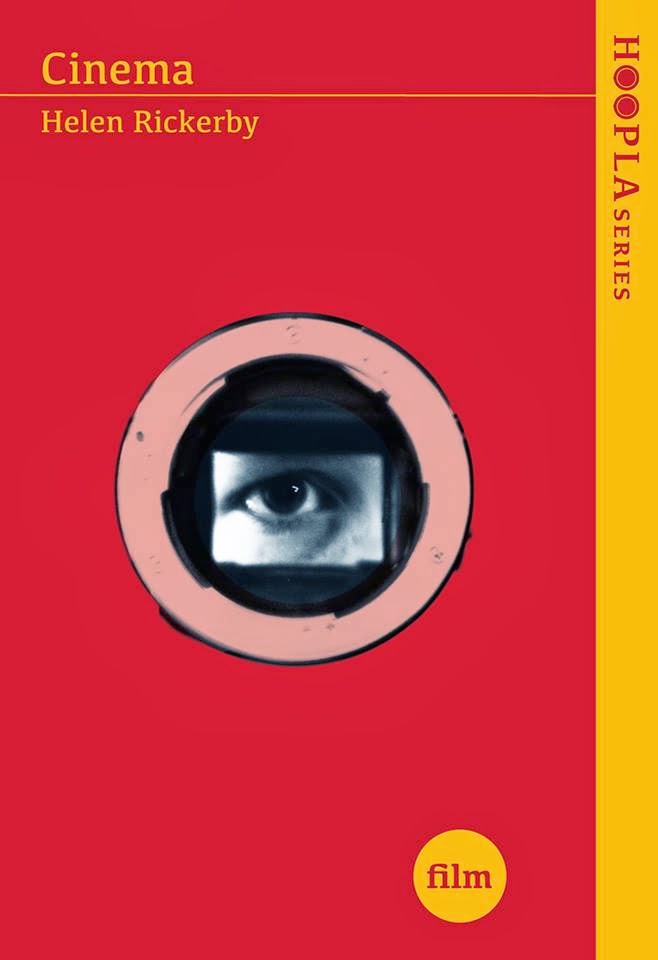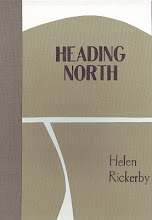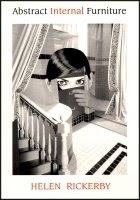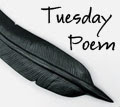As promised in my previous post, to help out the folks who stumble upon my blog looking for help with the essays on Anne Carson's long poem The glass essay, I'm posting my piece I wrote about it, which was originally published in the New Zealand Poetry Society magazine, A Fine Line (May 2008).
The Glass Essay, by Anne Carson
Three silent women at the kitchen table.
My mother’s kitchen is dark and small but out the window
there is the moor, paralyzed with ice.
It extends as far as the eye can see
over flat miles to a solid unlit white sky.
Mother and I are chewing lettuce carefully.
The kitchen wall clock emits a ragged low buzz that jumps
once a minute over the twelve.
I have Emily p. 216 propped open on the sugarbowl
but am covertly watching my mother.
A thousand questions hit my eyes from the inside.
My mother is studying her lettuce.
I turn to p. 217.
“In my flight through the kitchen I knocked over Hareton
who was hanging a litter of puppies
from a chairback in the doorway. . . .”
It is as if we have all been lowered into an atmosphere of glass.
Now and then a remark trails through the glass.
Taxes on the back lot. Not a good melon,
too early for melons.
[. . . ]
Out the window I can see dead leaves ticking over the flatland
and dregs of snow scarred by pine filth.
At the middle of the moor
where the ground goes down into a depression,
the ice has begun to unclench.
Black open water comes
curdling up like anger. My mother speaks suddenly.
That psychotherapy’s not doing you much good is it?
You aren’t getting over him.
My mother has a way of summing things up.
She never liked Law much
but she liked the idea of me having a man and getting on with life.
Well he’s a taker and you’re a giver I hope it works out,
was all she said after she met him.
Give and take were just words to me
at the time. I had not been in love before.
It was like a wheel rolling downhill.
But early this morning while mother slept
and I was downstairs reading the part in Wuthering Heights
where Heathcliff clings at the lattice in the storm sobbing
Come in! Come in! to the ghost of his heart’s darling,
I fell on my knees on the rug and sobbed too.
She knows how to hang puppies,
that Emily.
Rather than quote the whole of The Glass Essay, I’ve quoted a couple of representative chunks from it – the whole thing is almost 45 pages long, so too long to quote here. But you can read it online at www.poetryfoundation.org/archive/poem.html?id=178364, or in Carson’s book Glass, Irony and God.
The Glass Essay is my favourite poem and has been since I first read it in 2005. I’m sure I won’t be able to encapsulate all of the reasons why I love it so much, but I’m going to have a go at unpicking some of them.
The Glass Essay is a narrative poem, though not all that much actually happens. The narrator goes to visit her aging mother. She reads work by Emily Brontë, her favourite author, who she fears she may be turning into. She wanders on the moors feeling bad about being left by her lover. She and her mother visit her father, who has Alzheimers, in a rest home. By the end, the narrator seems to have undergone some kind of emotional healing.
Told like that, the story doesn’t sound like much, but don’t be fooled. It’s all in the way it’s written, and it’s written with language so cool and clear, it’s like the glass of the title. It doesn’t have the intense, full-of-images language of some poems, but it isn’t like prose either; it’s richer, and more cut-back and careful. There are some images in it of course, a simile here: ‘Black open water comes/curdling up like anger’; a metaphor there: ‘A thousand questions hit my eyes from the inside’.
For a poem that deals with such emotional subjects, it has a very cool, detached tone. Actually, I think it’s partly because of that distance that the poem can deal with strong emotion; I have a theory that poetry can turn the most heartfelt emotions into the most banal clichés unless you’re very careful. This narrator isn’t gushy. She tells us plainly, ‘I fell on my knees on the rug and sobbed too’, and then immediately undercuts it with a bite of humour: ‘She knows how to hang puppies,/that Emily.’
Certainly, this is a long poem, but for a little while after reading it, I find that in comparison ordinary-length poems seem pinched and ungenerous. Unsatisfying. Of course, there is a lot to be said for paring poems back, and usually I’m all in favour of it; but I find the length of The Glass Essay gives it space to consider things slowly, time to lead you places. Space for you to breathe.
Another thing that gives you space to breathe is the white space between the short stanzas. The poem is predominantly arranged into three-line stanzas, with the occasional variation for emphasis. And I’ve just this minute realised that each of the nine sections of the poem begin and end with a four-line stanza, acting as bookends.
The short stanzas work to pen in the words and emotions, keeping them in check. They stop the long poem from running away with itself. In my own work, I had previously avoided any kind of formal structure, preferring to let the stanzas grow and end organically. But this poem taught me the value of short, regular stanzas, which I’ve been experimenting with in my own work. And, following on from this, I’ve recently discovered that pretty much anything sounds much more profound if you put it in couplets. Give it a try sometime!
I’ve found that I like my literature to be educational. I enjoyed learning about New Orleans when reading Queen of Beauty, by Paula Morris, and the only benefit I think I gained from Moby Dick was an increased understanding of the business of whaling. The Glass Essay gave me new insights into the life and work of Emily Brontë, with its dabblings in literary criticism. It introduces us not only to Wuthering Heights, but also to her poems and what other critics say about her and her work.
The final reason I love The Glass Essay is because it inspires me. It was either during or immediately after reading this poem that I sat down and wrote my own Emily Brontë poem, ‘Passion’. The idea for it had been sloshing around in my head for some time, but I hadn’t known how to write it. Reading The Glass Essay unlocked something, and it just poured out.
Subscribe to:
Post Comments (Atom)






3 comments:
Hi Helen, I am ashamed to admit I have never read this poem. I will go and seek it out, thanks :) Please keep the recommendations coming.
P.S. I love 'Passion', think it's great.
Hi Eden, thanks for the comment, and yay that you like 'Passion'!
Don't be at all ashamed for not having heard of 'The Glass Essay', hardly anyone seems to have and I just stumbled across it. I think she's better known in the US and Canada. She's Canadian, but lived in the US for a while - she teaches Classics at university. And that's pretty much all I know about her.
I have the beginnings of an email to you in my drafts folder at the moment - I will try to send it soon. Am in the final stages of pulling together My Iron Spine - am considering pulling a few more poems out - but I'd better decide soon because it will have to go to print very soon!
Thanks Helen. I'm not familiar with Anne Carson's work but I will certainly try to get hold of one of her books.
Post a Comment